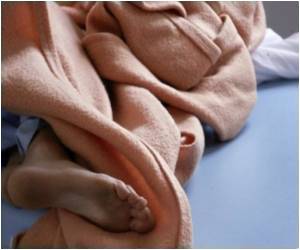
The researchers looked at how sleep disruptions-namely, the amount, quality, and schedule of sleep-affect children's adjustment.
They examined more than 140 children in third to fifth grades, of whom three-quarters were White and almost a quarter were African American. Families varied widely in terms of annual income and parents' education and jobs.
The study gathered information from parents' and children's reports, as well as motion sensors worn by the children at night to examine their sleep. The researchers looked at relations between sleep and emotional development when children were in third and fifth grades; they also compared how children's sleep when they were in third grade was related to their well-being when they were in fifth grade.
Findings indicate that children from poorer families had higher levels of externalizing symptoms (such as aggression and delinquency) and internalizing symptoms (such as depression, anxiety, and low self-esteem) when they slept poorly. Conversely, when these children slept better, their levels of symptoms were similar to those of other children from nonpoor families.
"The significance of children's sleep to their development is receiving increased attention," according to Mona El-Sheikh, Alumni Professor of Human Development and Family Studies at Auburn University and the study's lead author.
Advertisement
Source-ANI
SAV















